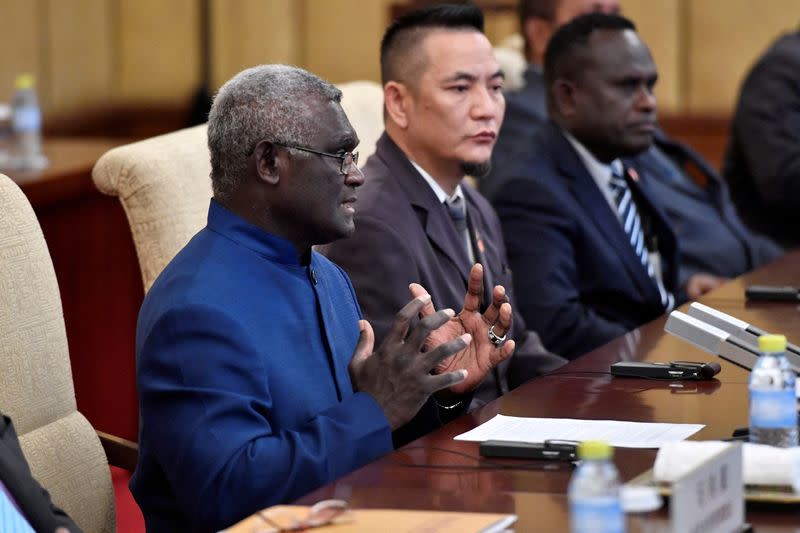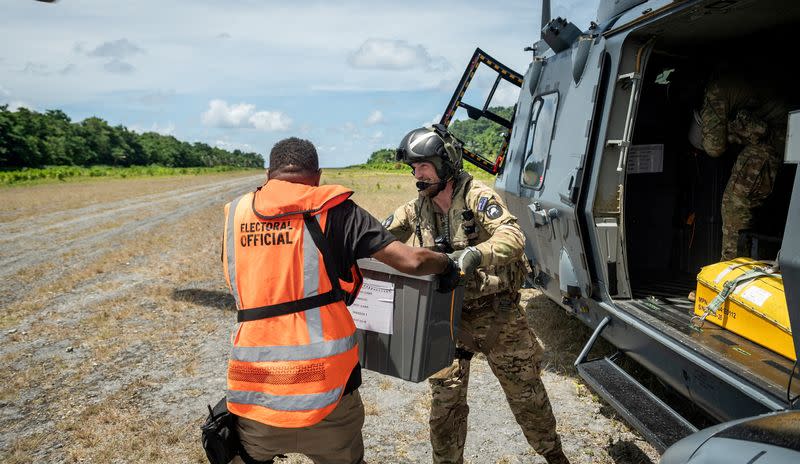Solomon Islands prepares for tense negotiations to form government
- Oops!Something went wrong.Please try again later.
By Kirsty Needham
SYDNEY (Reuters) -Solomon Islands faces a nervous wait to establish a government as opposition parties vie with incumbent Prime Minister Manesseh Sogavare's OUR party to form a coalition with independents after a national election failed to produce a clear winner.
Last week's election was the first since Sogavare struck a security pact with China in 2022, inviting Chinese police into the archipelago and drawing the Pacific Islands nation closer to Beijing.
The election is being watched by China, the U.S. and neighbouring Australia because of the potential impact on regional security.
Sogavare's police minister, Anthony Veke, lost his seat of West Guadalcanal to the biggest opposition party, Solomon Islands Democratic Party (SIDP), Tuesday's results showed.
With one result still to be announced, Sogavare's OUR party had 14 seats in a 50-seat parliament, while the CARE coalition of Matthew Wale's SIDP, U4C and former prime minister Rick Hou's Democratic Alliance Party (DAP) had 13 seats.
Another prominent opposition party, Peter Kenilorea Jr's United, which said it would scrap the China security pact, won seven seats. United is likely to join CARE, boosting it to 20 seats, a source with direct knowledge told Reuters. Kenilorea told Reuters "we have not joined CARE at this time".
"We are seeking change and will align with like-minded groups that also share this," he added.
Independents and micro parties, which hold 15 seats, will be heavily lobbied in the race to find the 26 seats needed to form a government.
Negotiations in the capital Honiara begin as newly elected lawmakers arrive from other islands. Previous elections have shown coalitions can be fluid.
"The next several days will see a lot of horse trading given that no party has won an absolute majority," said DAP leader Hou. "Its hard to ascertain any outcome. It's too fluid."
Election officials said three women had won seats and that there had been an 80% turnout of voters.
Police and defence forces from Australia, New Zealand, Papua New Guinea and Fiji are assisting with election security.
(Reporting by Kirsty Needham; Editing by Lincoln Feast, Michael Perry and Ed Osmond)


